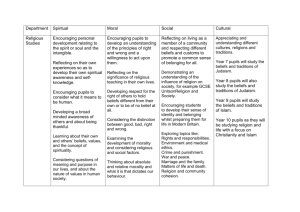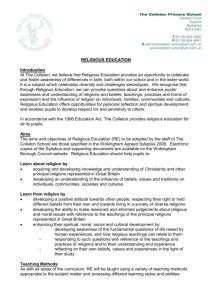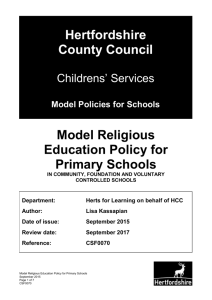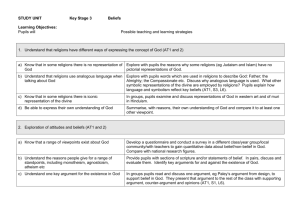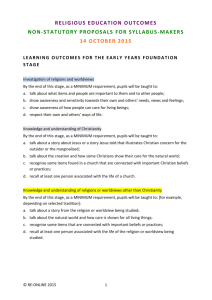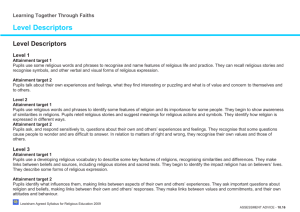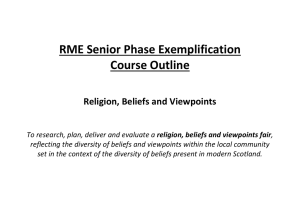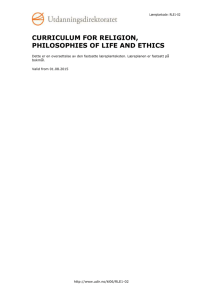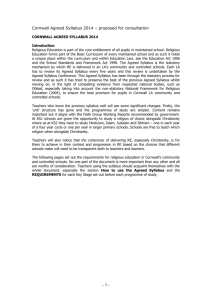School Policy Statement for Religious Education
advertisement
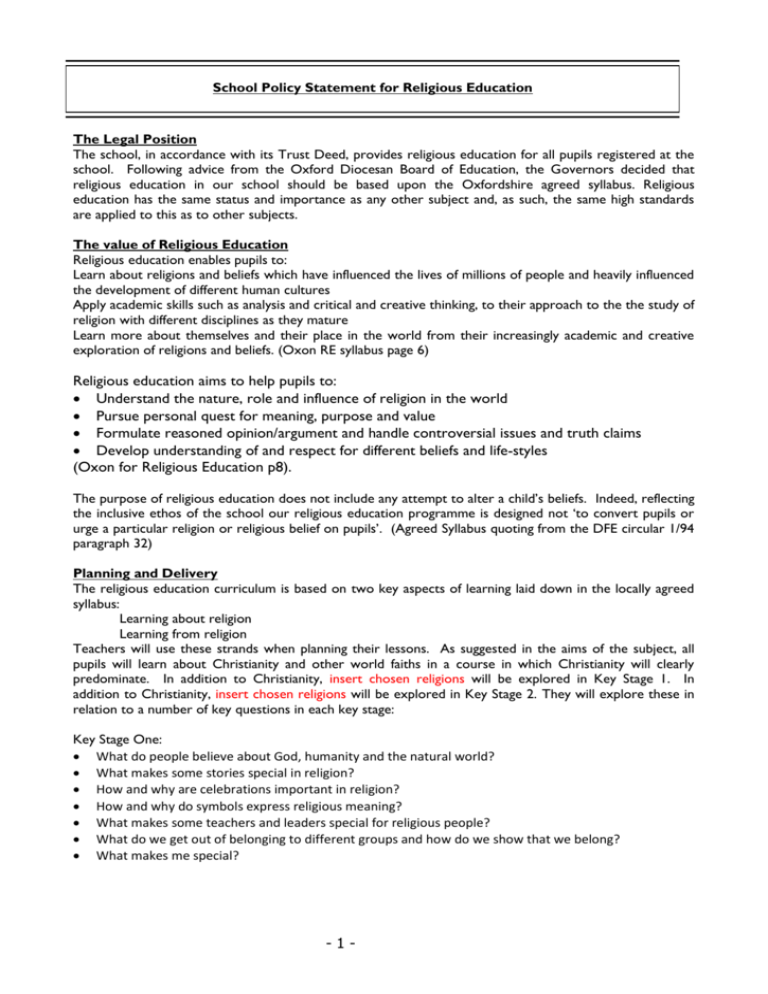
School Policy Statement for Religious Education The Legal Position The school, in accordance with its Trust Deed, provides religious education for all pupils registered at the school. Following advice from the Oxford Diocesan Board of Education, the Governors decided that religious education in our school should be based upon the Oxfordshire agreed syllabus. Religious education has the same status and importance as any other subject and, as such, the same high standards are applied to this as to other subjects. The value of Religious Education Religious education enables pupils to: Learn about religions and beliefs which have influenced the lives of millions of people and heavily influenced the development of different human cultures Apply academic skills such as analysis and critical and creative thinking, to their approach to the the study of religion with different disciplines as they mature Learn more about themselves and their place in the world from their increasingly academic and creative exploration of religions and beliefs. (Oxon RE syllabus page 6) Religious education aims to help pupils to: Understand the nature, role and influence of religion in the world Pursue personal quest for meaning, purpose and value Formulate reasoned opinion/argument and handle controversial issues and truth claims Develop understanding of and respect for different beliefs and life-styles (Oxon for Religious Education p8). The purpose of religious education does not include any attempt to alter a child’s beliefs. Indeed, reflecting the inclusive ethos of the school our religious education programme is designed not ‘to convert pupils or urge a particular religion or religious belief on pupils’. (Agreed Syllabus quoting from the DFE circular 1/94 paragraph 32) Planning and Delivery The religious education curriculum is based on two key aspects of learning laid down in the locally agreed syllabus: Learning about religion Learning from religion Teachers will use these strands when planning their lessons. As suggested in the aims of the subject, all pupils will learn about Christianity and other world faiths in a course in which Christianity will clearly predominate. In addition to Christianity, insert chosen religions will be explored in Key Stage 1. In addition to Christianity, insert chosen religions will be explored in Key Stage 2. They will explore these in relation to a number of key questions in each key stage: Key Stage One: What do people believe about God, humanity and the natural world? What makes some stories special in religion? How and why are celebrations important in religion? How and why do symbols express religious meaning? What makes some teachers and leaders special for religious people? What do we get out of belonging to different groups and how do we show that we belong? What makes me special? -1- Key Stage Two: How do people’s beliefs about and attitudes towards God, the universe and humanity act as a guide through life? What do different sacred texts teach about life and how do they influence people differently? In what different ways do people worship and what difference does this make in their lives?? What makes some occasions in life significant and how and why are these recognised and celebrated? How are religious and spiritual ideas expressed and why is literal language not adequate? What is it about key religious figures that makes them inspirational for religious believers? How should people’s religious and other beliefs, values and attitudes influence their personal lives and is it possible to live up to this? How do religious families and communities practice their faith and how is this seen in local communities? How do religions and beliefs influence the way people respond to global issues such as human rights, social justice and the environment? Teaching, Learning and Achievement Learning will focus on pupils’ own experiences and self-concept, universal human experiences and concepts as well as religious experiences and concepts. A variety of resources, styles, and techniques will be used as appropriate. Students will engage in activities which will also enable teachers to assess what they have learnt. Records kept will include information of pupils’ experiences and judgements about their attainment and progress. Withdrawal from religious education Parents may withdraw their children from all or any part of religious education and teachers can exercise their right to withdraw from teaching the subject. However, we hope that all parents and teachers will feel comfortable with the type of religious education being taught at this school. Parents who wish to withdraw their children are requested to provide written notification to this effect. -2-


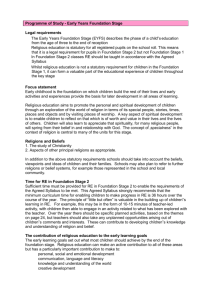

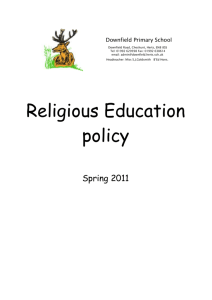

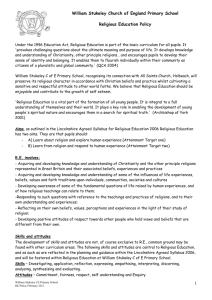
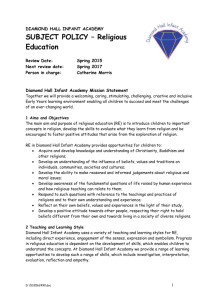

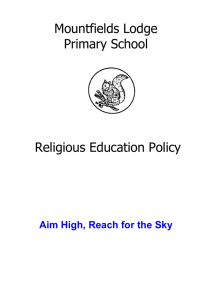
![afl_mat[1]](http://s2.studylib.net/store/data/005387843_1-8371eaaba182de7da429cb4369cd28fc-300x300.png)

